Kingbull Rover vs. Mokwheel Basalt: Unleashing the Power of Off-Road Electric Bikes
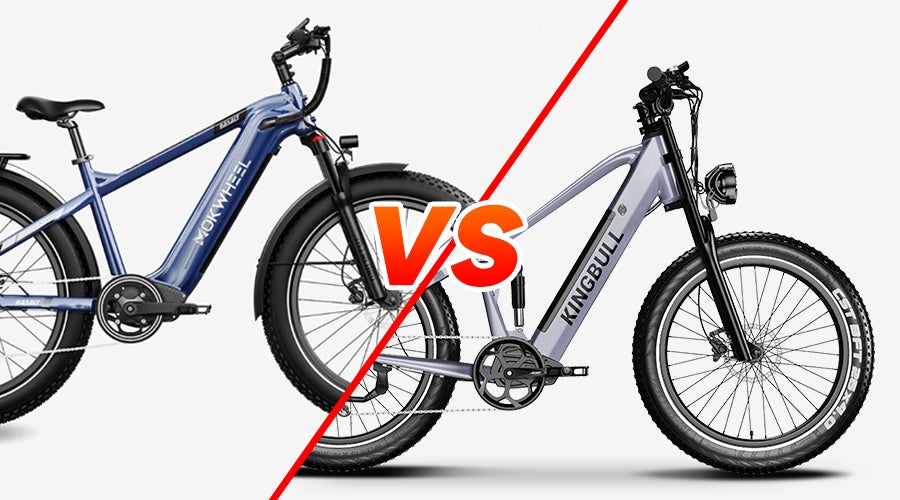
In the realm of adventure electric bicycles, selecting a model that suits your needs can be as challenging as embarking on an expedition. The market is flooded with electric bikes that emphasize off-road capabilities and the spirit of adventure, and among them, Kingbull and Mokwheel each showcase their unique features. In this article, we will conduct a comprehensive comparison of these two off-road electric bikes, aiming to provide you with a clearer guide for making an informed choice. Whether you're venturing into mountainous terrains or navigating urban adventures, understanding the strengths of Kingbull and Mokwheel will aid you in deciding which model aligns better with your adventurous requirements. Let's delve into the adventure journey of these two electric bikes, exploring their performance in various aspects.
Performance Overview
| Rover | Basalt | |
| Battery | 48V 17.5Ah Lithium Battery | Samsung 48V 19.6Ah |
| Motor | 48V 750W Brushless Rear Hub | 48V 750W Brushless Rear Hub |
| Speed | Up to 28 mph on Level 5 PAS | Up to 28 mph on Level 5 PAS |
| Range | Up to 60 miles | 60-80 Miles |
| Pedal Assist | 5 Levels | 5 Levels |
| Brakes | Hydraulic | Hydraulic |
| Throttle | Half Twist | Thumb |
| Sensor | Speed | Torque |
| Gears | Shimano 7-Speed | Shimano 7-Speed |
| Weight | 77 lbs | 79 lbs |
| Payload Capacity | 440 lbs | 400 lbs |
| Frame |
6061 Aluminum Alloy with Internal Battery |
6061 Aluminum Alloy with Internal Battery |
| Wheels | 26″ x 4″ CST Fat Tires | 26''x4.0" CHAOYANG Fat Tire |
| Soft-tail | Yes | No |
| Light | 48V LED Front Headlight | Dual-Bulb Brilliance |
| Display | LCD Colorful Screen with USB | LED Integrated |
| Price | $1,199.00 | $1,899.00 |
Next, we will delve into a detailed comparison of the key features between the Kingbull and Mokwheel electric bikes, as outlined in the table. By thoroughly exploring their performance and functionalities across various aspects, our aim is to provide you with a comprehensive understanding.
Battery
The Rover model is equipped with a high-performance 48V 17.5Ah lithium-ion battery. Although the battery does not utilize a well-known brand, we insist on selecting high-quality battery cells and employing advanced manufacturing processes. This ensures that the Rover's battery not only delivers long-lasting range but also excels in terms of lifespan and stability.
On the other hand, the Basalt model features a 48V 19.6Ah battery from Samsung. The choice of this Samsung battery ensures Basalt's impressive capabilities in terms of range.
Whether it's the Rover or the Basalt, we strive to optimize every detail, ensuring that when users choose a Kingbull electric bike, they receive not only outstanding battery performance but also a comprehensively upgraded riding experience.
Motor
Both the Rover and Basalt electric bikes are equipped with a powerful 48V 750W brushless rear hub motor, in compliance with the electric bike regulations of the United States. The U.S. electric bike regulations stipulate a maximum motor power of 750W, and this design not only meets regulatory standards but also provides riders with excellent power support. Kingbull adheres to the principles of compliance and legality, ensuring users receive outstanding motor power that aligns with local regulations.
Notably, both models opt for a rear hub motor. Rear hub motors offer several notable advantages, with one being a smoother and quieter riding experience. As the motor is integrated into the rear wheel, it eliminates friction and noise from traditional chain and gear systems, resulting in a more tranquil and stable riding experience.
Speed & Range
The Kingbull Rover and Mokwheel Basalt electric bikes both exhibit outstanding performance, especially in terms of top speed and range. Both models can achieve a top speed of 28 miles per hour. We deeply understand the varying regulations across different states in the United States regarding the speed of electric bikes. Therefore, Kingbull insists on providing a top speed of 28 mph to ensure compliance with standards in all states, allowing users to enjoy fast and efficient rides anywhere.
In terms of range, the Rover boasts a maximum range of up to 60 miles, while the Basalt offers an extended range of 60 to 80 miles. This means that whether it's daily commuting or weekend adventures, both the Rover and Basalt can meet users' needs for longer rides, providing riders with more flexible and extensive travel options.
Brakes
Kingbull Rover and Mokwheel Basalt are both equipped with advanced hydraulic brake systems. This system demonstrates outstanding performance in braking, providing riders with excellent control to ensure speed management and safe stopping during rides. It not only delivers powerful braking force but also shows significant improvements in response speed and sensitivity. This allows riders to precisely manage their speed, easily adapting to different road conditions and riding environments, ensuring reliable safety performance.
Compared to traditional brake systems, hydraulic brake systems exhibit exceptional stability and durability, reducing maintenance frequency and enhancing the overall riding experience. Whether in high-speed riding or emergency braking situations, these brake systems can deliver robust braking effects, ensuring riders maintain control over their rides safely and comfortably in any scenario.
Throttle & Sensor
Rover and Basalt showcase distinctly different designs in terms of throttle control. Rover utilizes a Half Twist throttle design, offering off-road riders a more convenient and intuitive operating experience. Particularly in off-road environments, the Half Twist design allows riders to make throttle adjustments more effortlessly and quickly, enhancing maneuverability and response speed. For riders seeking a more exhilarating off-road experience, this design better caters to their need for precise control.
In contrast, Mokwheel's Basalt opts for a Thumb throttle. While this design may be more common in some scenarios, in off-road riding, the Half Twist design aligns better with the rider's need for swift adjustments. The Thumb throttle may require more time and effort to make corresponding adjustments, and comparatively, its maneuverability in off-road conditions may be somewhat limited.
In terms of sensors, the Rover employs a speed sensor, while the Basalt opts for a torque sensor. The speed sensor demonstrates clear advantages on flat surfaces, allowing the rider to quickly reach the target speed with minimal pedal effort, providing a smooth riding experience. In contrast, the torque sensor requires greater pedal force to adjust the speed, but excels in situations that demand more forceful pedaling.
Weight & Payload Capacity
The Rover and Basalt electric bikes excel in their designs concerning weight and load-bearing capacity, providing users with a stable riding experience. The Rover's lightweight design, weighing only 77 pounds, enhances its maneuverability and agility. In comparison, the Basalt, slightly heavier at 79 pounds, still maintains reasonable weight, ensuring overall stability.
In terms of load-bearing capacity, the Rover demonstrates outstanding performance, supporting weights of up to 440 pounds. This means users can not only carry necessary items but also easily share enjoyable riding moments with others. In contrast, the Basalt has a load-bearing capacity of 400 pounds, slightly lower than the Rover but still sufficient for daily riding and carrying items.
Both models showcase robust load-bearing capabilities, providing users with more choices and convenience. Kingbull electric bikes are dedicated to delivering excellent performance in all aspects, meeting users' expectations for diverse travel needs.
Frame & Wheels
Both models feature robust and durable 6061 aluminum alloy frames with integrated battery systems. This design not only enhances the overall sleekness of the appearance but also provides better stability and ruggedness to the electric bikes, ensuring excellent performance in various riding conditions.
Regarding the tires, both the Rover and Basalt adopt a 26*4 fat tire design, offering riders a smoother and more comfortable riding experience. Fat tires have a larger contact area, providing better stability and easy adaptability to various terrains. Additionally, fat tires offer improved shock absorption, delivering a more comfortable riding experience on uneven surfaces. Rover utilizes CST tires, a well-known brand recognized for careful development in tread design and rubber material, offering riders excellent grip and durability. Basalt, on the other hand, opts for Chaoyang tires, known for their high-quality manufacturing processes and outstanding performance, providing reliable tire support for the Basalt model.
Soft-tail
One of the standout features of the Rover electric bike is its distinctive soft-tail design, a relatively rare characteristic among off-road electric bicycles. The soft-tail design proves to be particularly prominent in off-road riding, effectively mitigating bumps and vibrations to provide riders with a smoother and more comfortable cycling experience. In comparison to electric bikes from other brands, Rover, through the clever design of its soft-tail system, delivers superior suspension effects for riders on uneven terrains, instilling confidence to tackle various challenges.
The advantages of the soft-tail system extend beyond comfort; it also contributes to enhanced stability and maneuverability of the vehicle. On steep slopes and rugged mountain trails, the soft-tail system plays a crucial role, allowing riders to better control the bike, maintaining a stable and agile handling.
Light & Display
The Rover electric bike showcases Kingbull's dedication to innovation and user experience in lighting and display. Firstly, the Rover is equipped with a powerful pair of 48V LED front headlights. Compared to the headlights of other electric bikes on the market, their larger size provides a wider illumination range, offering riders a clearer and brighter vision. This design not only enhances safety during nighttime rides but also helps users adapt to various road conditions.
In terms of instrumentation, the Rover features a colorful LCD screen with a built-in USB charging port. This full-color screen design not only enriches the display of vehicle information but also increases interaction between the user and the bike. Additionally, the built-in USB charging port provides a convenient mobile charging function for riders, especially during outdoor activities, addressing the issue of low phone battery and ensuring communication tools always have ample power.
In comparison, the Basalt is equipped with Dual-Bulb Brilliance front headlights and an LED Integrated dashboard. While these are commendable designs, Rover's innovative approach to lighting and display further emphasizes Kingbull's commitment to user needs and safety.
Price
In terms of pricing, Kingbull demonstrates exceptional value for its electric bicycles. The Rover is priced at only $1699, while the Basalt is listed at $2199. This undoubtedly makes the Rover a more affordable option, providing riders with an economical choice for a high-performance electric bike. It's worth noting that during specific promotional periods, the prices of both models are further reduced. This means that users not only get outstanding performance and quality with Kingbull electric bikes but also have the opportunity to enjoy even more budget-friendly prices during promotional events.






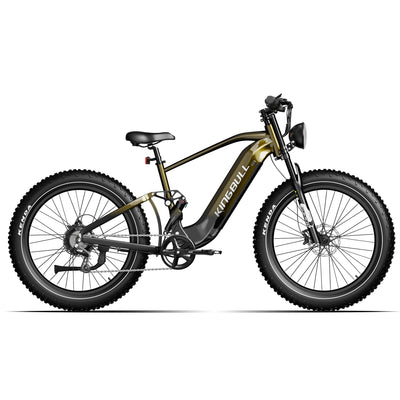

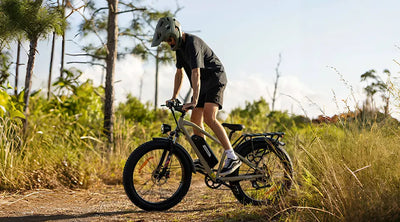

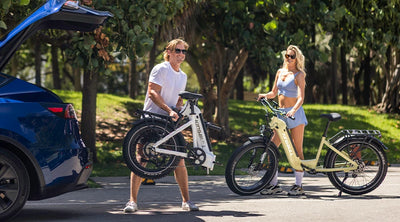
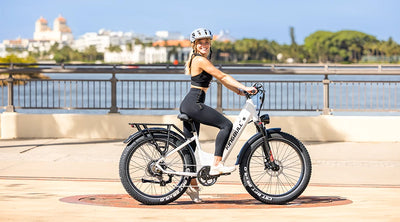
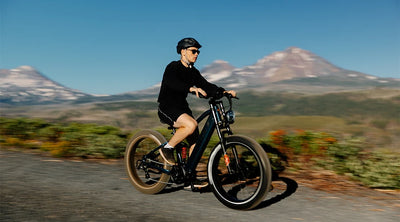
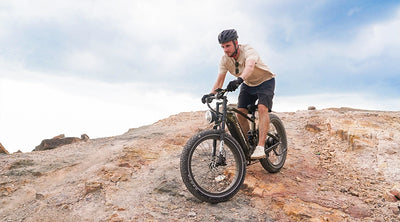


















Leave a comment